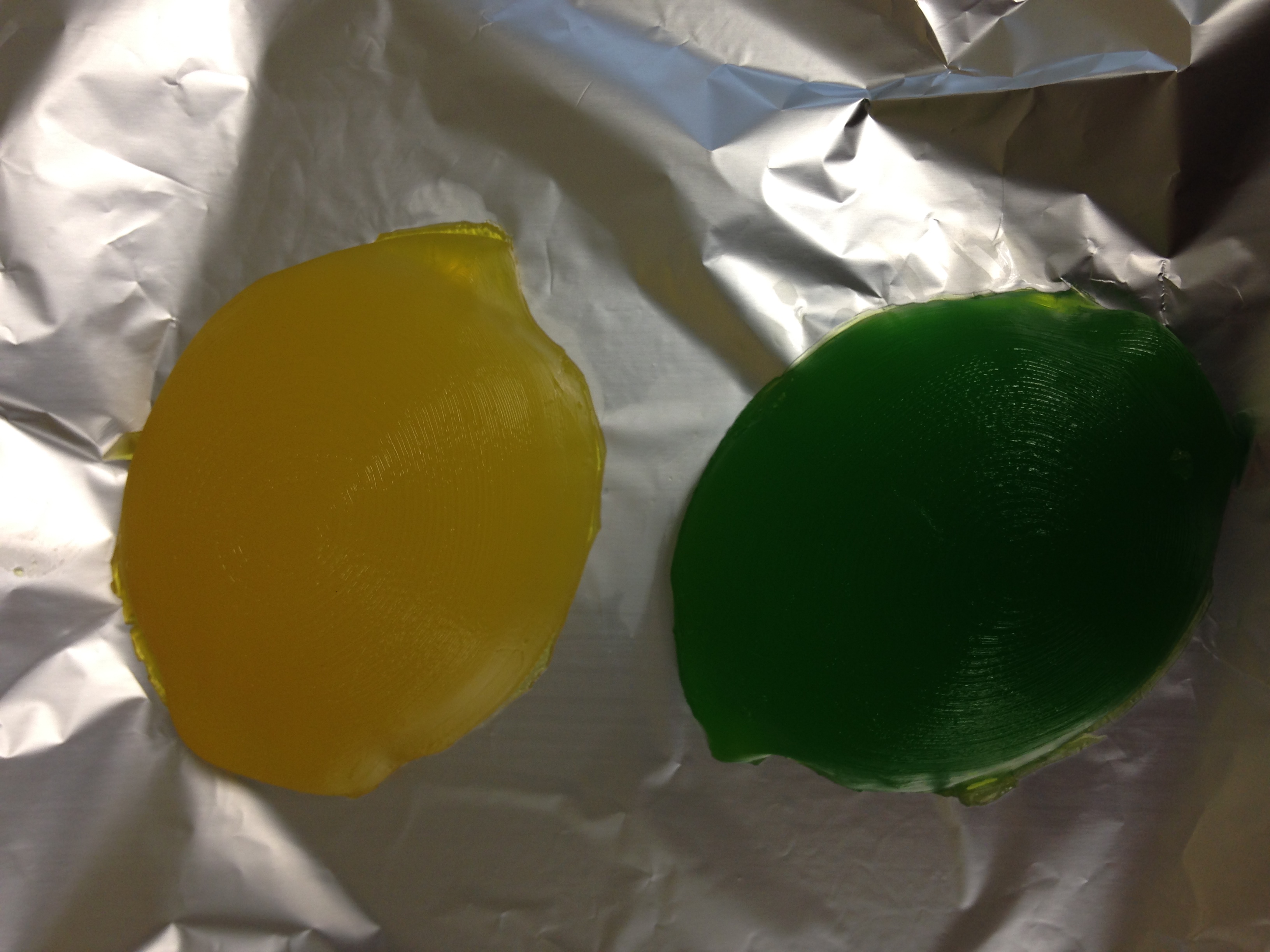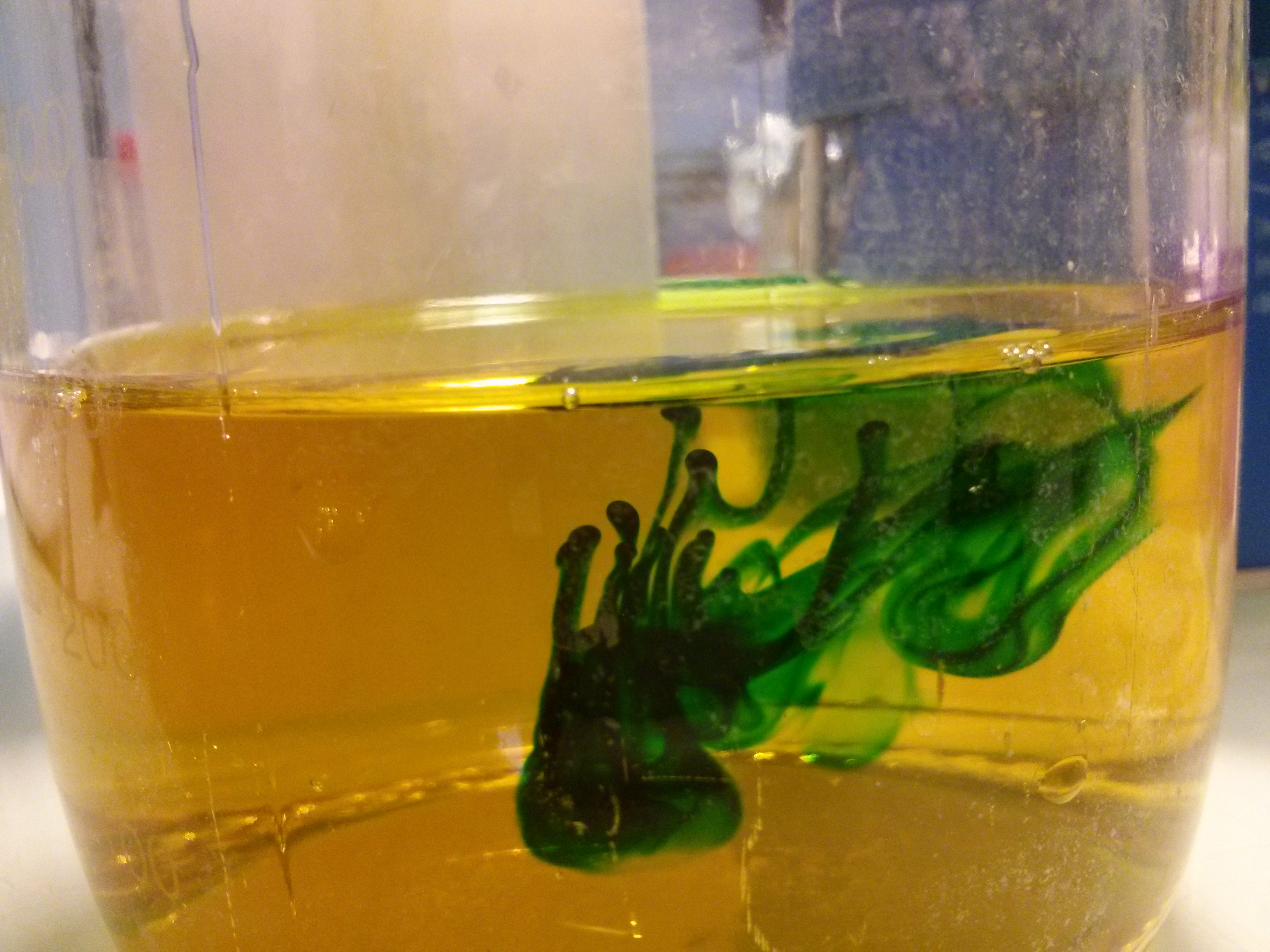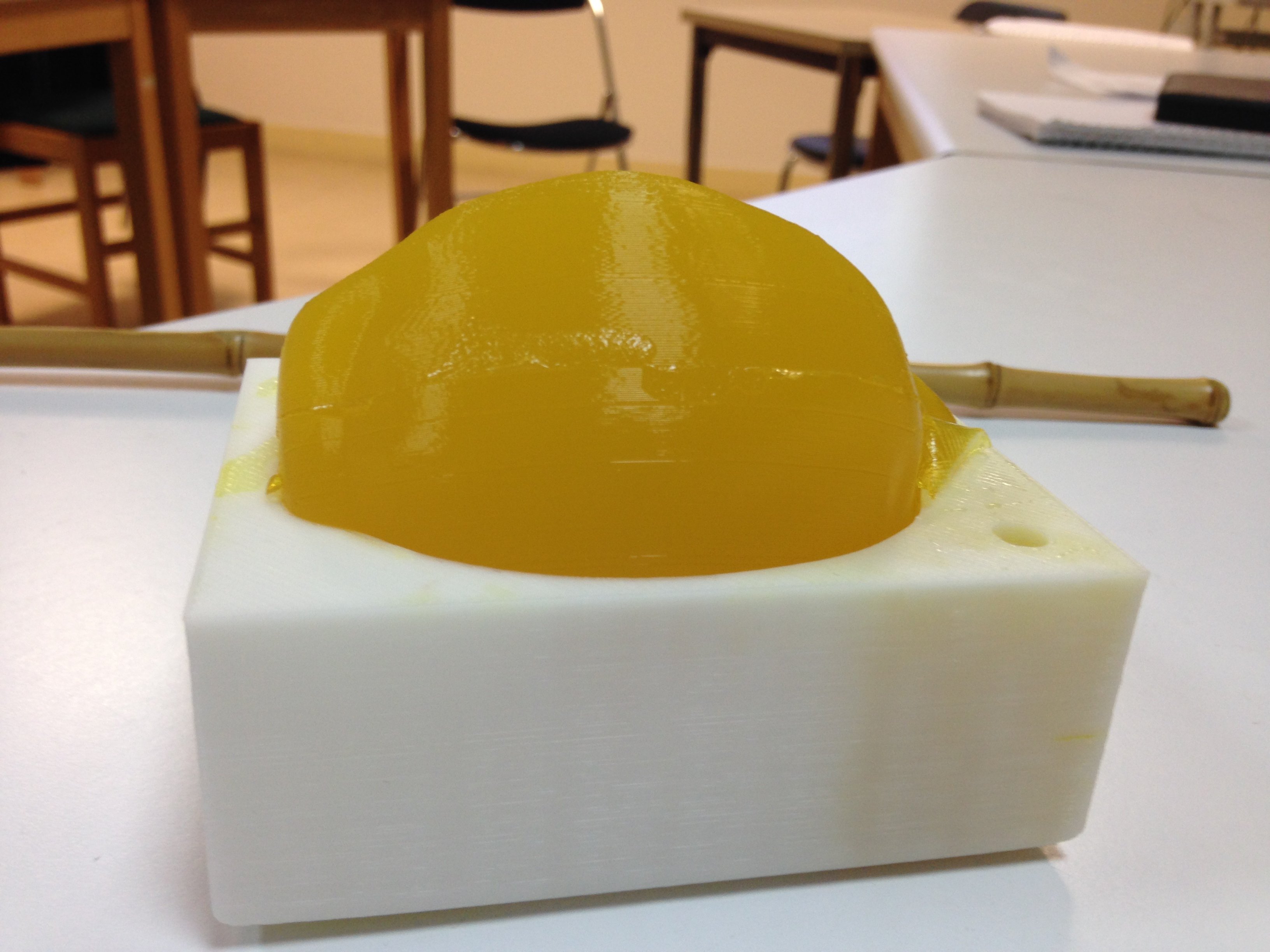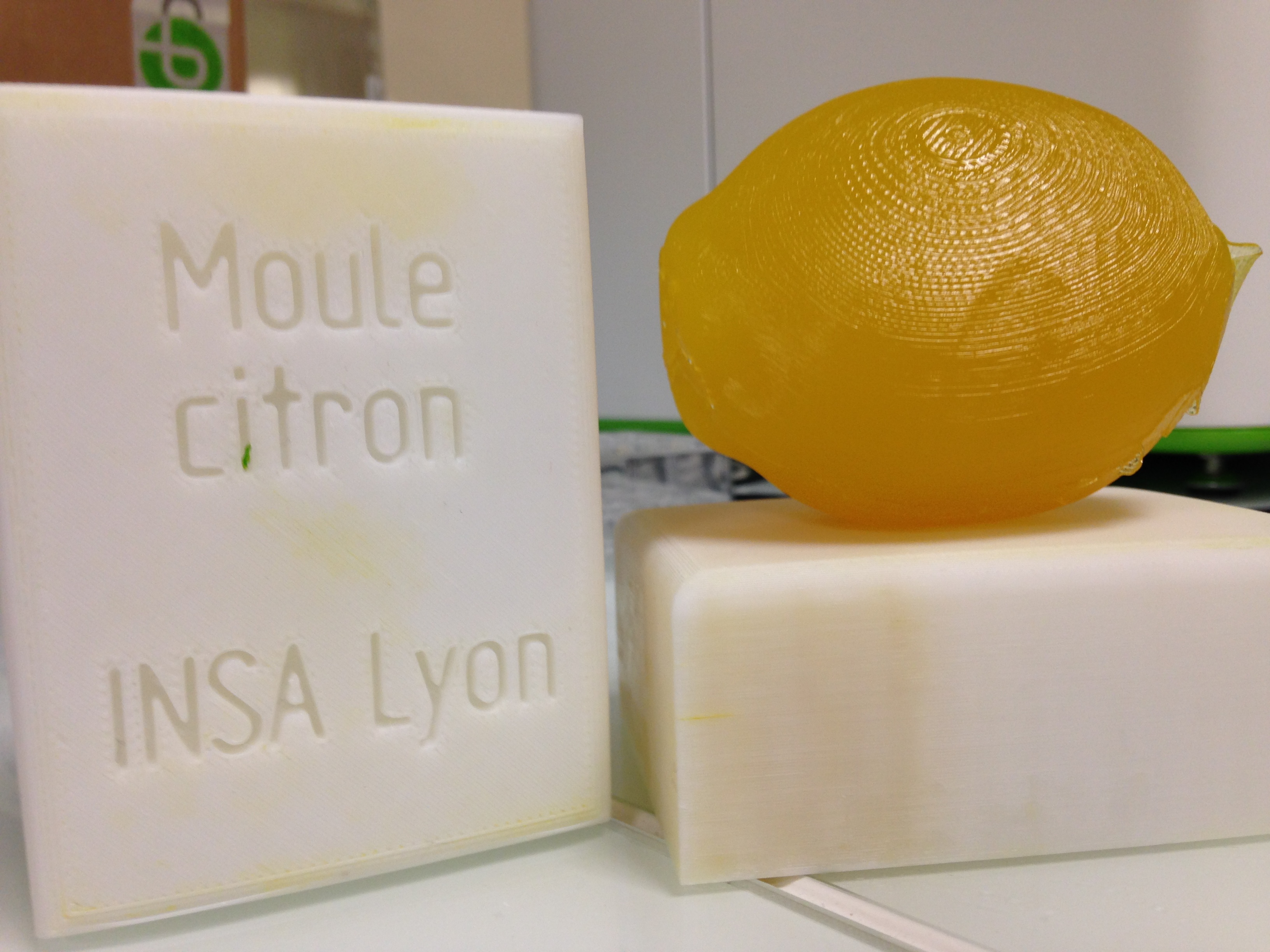Team:Paris Saclay/Project/Lemon Shaping
From 2014.igem.org
(→Realisation) |
(→Realisation) |
||
| Line 27: | Line 27: | ||
[[File:Paris Saclay lemon.JPG|230px|left|]] | [[File:Paris Saclay lemon.JPG|230px|left|]] | ||
[[File:Paris Saclay lemon3.JPG|230px|left|]] | [[File:Paris Saclay lemon3.JPG|230px|left|]] | ||
| + | |||
| + | |||
| + | |||
| + | |||
Revision as of 22:14, 16 October 2014

Contents |
Lemon Shaping
Countdown
This page is under Terry's responsibility
- Deadline: 08/oct.
- Text
- Deadline: 12/oct
- Final review by Solenne.
Introduction
We wanted to create our lemon on a base of agar gel, which can be a good medium for bacteria and enough cohesive to support its own structure. Our very first idea was to print the lemon with agar, but 3D printer are still pricey and the realisation quite difficult given that we do not have much time allowed. We eventually opted for a more conventionnal way to achieve our objective : molding !
Realisation
First of all, we needed to know the optimal concentrations of agar to make our gel. Too much agar, and the bacteria colors would be masked by the natural one of agar, plus, air would not properly pass through and bacteria would die. Not enough agar, and the structure would collapse. Various tests have been carried out and we conjectured that the most efficient gel for our purpose has a concentration of 25 mg/l.
Secondly, We tried different concentrations of bacteria to see if our gel let appear the color of our bacteria. The problem was the LB medium since it is naturally colored. We eventually opted for a colorless one : M63 medium. We also prepared bacteria expriming amplified Fluorescent Protein in the case that we could not achieve our chromoprotein.
Concerning the mold itself, we came up with an alternative solution to mold using only agar but we finally had two other options : a home-made mold of silicon and an other mold made by the Lyon team using a 3D printer.
 "
"








